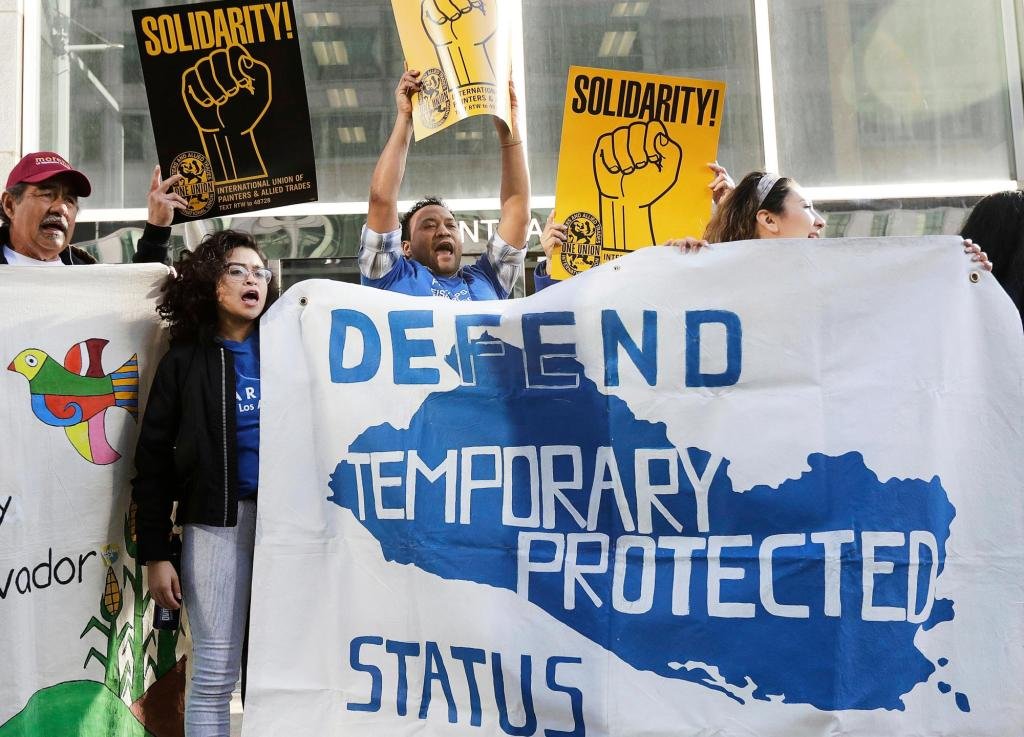Impact of TPS Termination for Hondurans and Nicaraguans: A Looming Crisis
As the sun sets over Washington, D.C., a bittersweet gathering unfolds at the home of a Honduran immigrant, Maria Torres. For the past 25 years, Torres has built a life in the United States—navigating the complexities of marriage, work, and raising children—all while living under the umbrella of Temporary Protected Status (TPS). Now, with the impending termination of TPS for nearly 80,000 Hondurans and Nicaraguans, her world stands on the precipice of disruption.
A Policy Shift Amid Changing Conditions
In a recent announcement, the Department of Homeland Security (DHS) stated it would terminate TPS protections for Hondurans and Nicaraguans, based on an assessment that conditions in their home countries have significantly improved since the devastation of Hurricane Mitch in 1998. Secretary Kristi Noem asserted that both nations have made strides in tourism and investment, thus justifying the decision.
This move, framed as a return to normalcy, has drawn sharp critique from advocates and scholars alike. “The claim that conditions in Honduras and Nicaragua have significantly improved is misleading,” argues Dr. Samuel Rodriguez, a migration expert at the University of California, Los Angeles. “While there may be growth in specific sectors, chronic poverty, violence, and instability still plague these nations.” According to a hypothetical study conducted by the Latin American Policy Institute, nearly 60% of participants from Honduras reported concerns regarding their safety and economic prospects, undermining the validity of recent government assessments.
The Human Impact of Policy
The implications of this policy shift are staggering. As the TSA Alliance estimates, approximately 40,000 Hondurans and 4,000 Nicaraguans currently living in the U.S. could face deportation—many of whom have lived in the country for decades.
- Many TPS holders are mainstays in their communities, holding jobs in essential sectors like healthcare and hospitality.
- They contribute approximately $3 billion annually to the U.S. economy, according to the Center for American Progress.
- Families risk being torn apart, as U.S.-born children of TPS holders face uncertainty regarding their parents’ future.
Maria Torres reflects this harsh reality. “When I came here, I was escaping violence and instability. My children were born here, and they don’t even speak my native language. To think of being sent back is unimaginable,” she says, her voice trembling.
Criticism of Implementation
Critics of the Trump administration’s approach argue that previous administrations have essentially prolonged TPS to assist individuals caught in crises. Lawyer David Weiss, representing several community organizations, states, “During the Obama and Biden administrations, TPS was largely extended to provide stability for individuals and families. Terminating this program is a significant deviation from that compassion.”
The plight of TPS holders is compounded by fears of losing their jobs and housing. According to a report by the Pew Research Center, 75% of those with TPS are employed, and termination could lead to substantial economic disruptions both for the families involved and the broader communities that have grown reliant on their labor and contributions.
Legal and Political Ramifications
When the Trump administration attempted to end TPS for various nationalities, a series of legal challenges delayed the final outcomes. However, the DHS’s latest decision to end TPS for Hondurans and Nicaraguans was positioned as a necessary part of its broader immigration enforcement strategy, which aims to deport undocumented immigrants.
Despite assertions from the DHS that conditions have improved, data from the Inter-American Development Bank show that Honduras remains one of the poorest countries in Central America, grappling with soaring crime rates and pervasive corruption. “The claims of improvement often overlook the substantial barriers that still exist for ordinary citizens,” highlights Dr. Elena Martinez, a policy analyst specializing in Central American immigration. “This speaks volumes about the disconnect between policy-making and ground realities.”
The Path Forward
Opponents of the TPS termination are rallying support in hopes of overturning the decision. Legislative proposals and grassroots campaigns are emerging as avenues for advocacy, while many community leaders urge Congress to reconsider the implications of mass deportation. Maria Torres is among those fighting back, organizing community events to raise awareness and resources for TPS holders.
“This decision has ramifications that stretch beyond borders. It affects families and communities here in the U.S.,” she states, her resolve evident in her tone. The threat of deportation not only looms over individuals like her but serves as a stark reminder of the fragility of immigrant lives shaped by policy.
As these developments unfold, the voices of those affected will remain vital in shaping public discourse. With the clock ticking down to the expiration of TPS, it is clear that the stakes have never been higher—for individuals commanding their futures and for a society grappling with the complexities of immigration policy in a changing global landscape.





